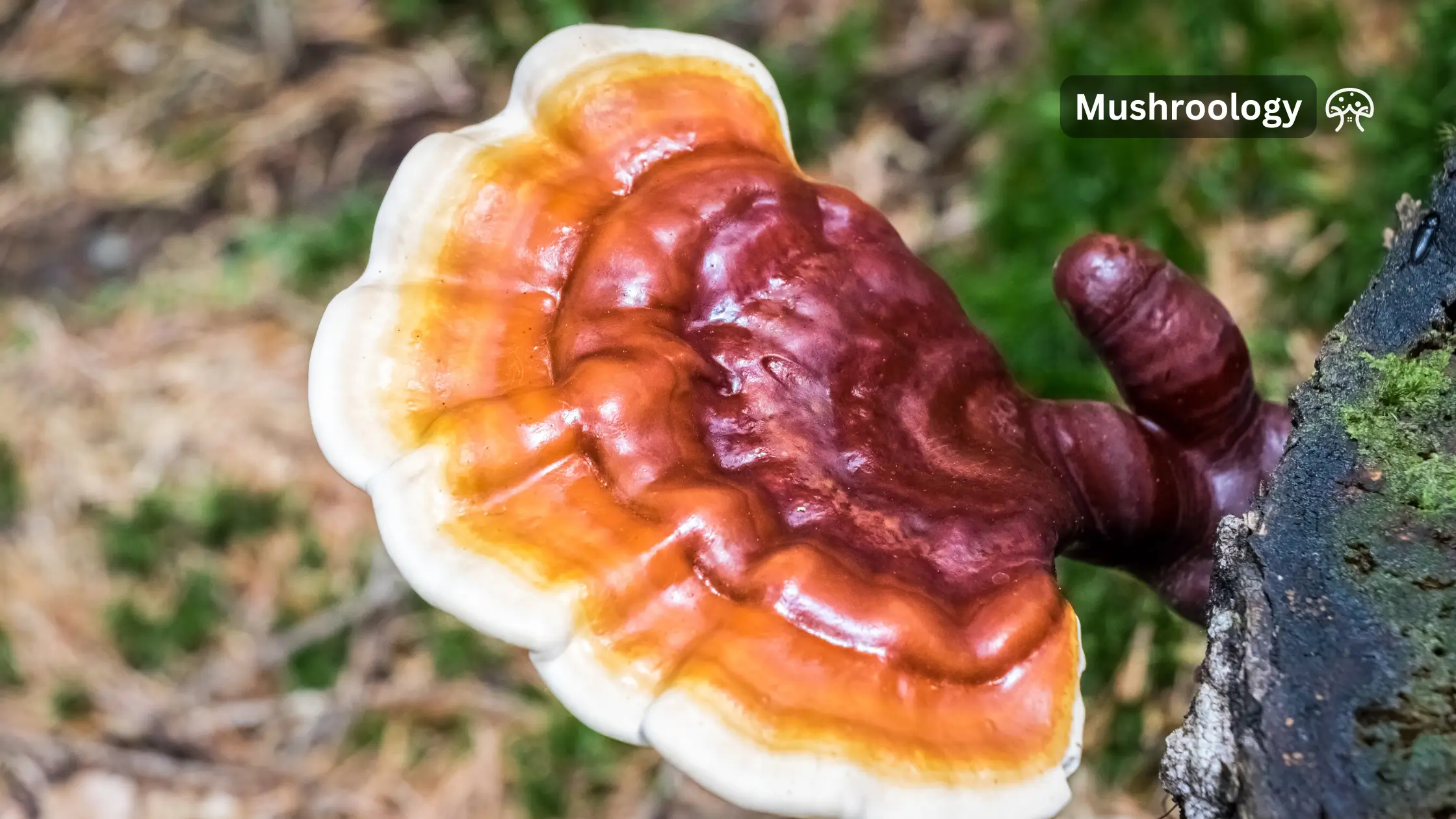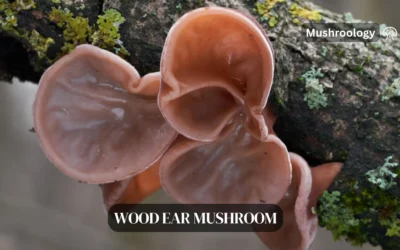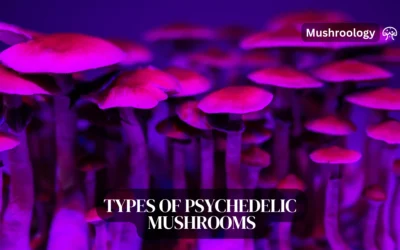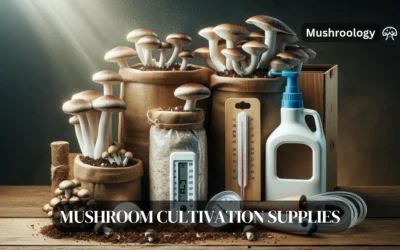Evidence-based health benefits of Ganoderma lucidum from clinical research
You’ve heard about reishi mushrooms being called the “mushroom of immortality.” But what do the actual studies say about reishi mushroom benefits? Here’s what current research reveals about this ancient medicinal fungus.
Known as Ganoderma lucidum in scientific circles, reishi has been used in Traditional Chinese Medicine for over 2,000 years. Now modern science is catching up, with clinical trials from Memorial Sloan Kettering Cancer Center showing it contains beta-glucan polysaccharides and triterpenes – compounds with real biological effects.
Safety Warning
- Reishi can interact with blood thinners and diabetes medications
- Powdered reishi taken over 1 month may cause liver toxicity
- Avoid if pregnant, breastfeeding, or scheduled for surgery
- Always consult your healthcare provider before starting reishi supplements
How reishi mushrooms boost your immune system
Your immune system relies on white blood cells to fight infections. Research shows reishi mushroom benefits include enhanced immune function through multiple pathways.
According to a 2024 study in Integrative Medicine Research, over 50% of cancer patients taking reishi reported improvements in fatigue and depression. The mushrooms work by affecting genes in white blood cells and altering inflammation pathways.
Research from Healthline’s medical team found that reishi mushrooms help manage T lymphocyte cells (T cells) – critical defenders against infections and cancer. A clinical trial with breast cancer patients showed 6-9 grams daily increased CD8+ T cells and CD19+ B cells.
The National Cancer Institute reports that mushrooms stimulate innate immune cells like monocytes, natural killer cells, and dendritic cells. This activity comes from high-molecular-weight polysaccharides (beta-glucans) that modulate immune responses.
Try this: Start with 1.5-3 grams (1500-3000 mg) of reishi extract daily, divided into 2-3 doses. Quality matters – look for standardized extracts with at least 10% polysaccharides.
What science says about reishi and cancer
While reishi isn’t a cancer cure, research shows potential supportive benefits. Memorial Sloan Kettering notes that extracts demonstrate immunomodulatory, anti-inflammatory, and hepatoprotective properties in laboratory studies.
Cancer Research UK reviewed studies where reishi improved quality of life in lung cancer patients receiving chemotherapy. The mushrooms appeared to work on the immune system, though larger trials are needed.
A 2016 review in PMC examined five randomized controlled trials. While researchers didn’t recommend reishi as first-line treatment, they found it enhanced tumor response when combined with conventional therapies. No serious toxicity was reported.
Beta-glucans in reishi may slow or stop tumor growth by stimulating “natural killer cells” that target abnormal cells, according to WebMD’s medical review. However, more human studies are needed to confirm these effects.
How reishi affects blood sugar and diabetes
Managing blood sugar is crucial for diabetics. Multiple studies examine reishi mushroom benefits for glucose control, with mixed results.
Research published in PMC found that water-alcoholic extracts of reishi given to diabetic rats for 30 days reduced blood sugar from 456 mg/dL to 265 mg/dL. The polysaccharides appear to protect pancreatic beta cells that produce insulin.
However, MedlinePlus cautions that a 2016 human study found no effect on fasting blood sugar or hemoglobin A1c levels. The discrepancy between animal and human studies highlights the need for more research.
Verywell Health’s review of a 2015 study showed reishi reduced both blood sugar and insulin in mice. Compounds in the mushrooms modified enzymes related to blood sugar control and improved how the body uses insulin.
Important: If you take diabetes medications, monitor blood sugar closely. Reishi may enhance their effects, potentially causing dangerously low blood sugar.
Reishi’s impact on heart health and cholesterol
Your cardiovascular system might benefit from reishi mushrooms, though evidence remains preliminary. Healthline’s analysis found that while older studies showed minimal effects, recent research suggests reishi helps manage triglycerides and cholesterol markers.
The mushrooms contain over 400 nutrients, including compounds that lower blood pressure, according to WebMD’s nutrition team. However, MedlinePlus notes that studies in diabetics showed no cholesterol reduction.
If you have low blood pressure or take blood pressure medications, use caution. Multiple sources warn that reishi can lower blood pressure further, potentially causing dizziness or fainting.
Why reishi mushrooms may fight fatigue and depression
Chronic fatigue affects millions, and reishi shows promise for symptom relief. Verywell Health reports that a 2020 study in fibromyalgia patients found 6 grams daily for six weeks improved pain, depression, and quality of life.
The 2024 cancer patient survey found that 52% reported fatigue improvements and 50% noted reduced depression after taking reishi products. Researchers believe the mushrooms help the body adapt to stress.
Research cited by Healthline indicates polysaccharides in reishi decrease exercise-induced fatigue. The adaptogenic properties may explain why Traditional Chinese Medicine has long used it for vitality.
Optimal dosing for reishi mushroom benefits
Effective doses vary by condition and preparation method. WebMD’s supplement database reports typical doses of 1400-5400 mg daily in divided doses.
Clinical trials have used:
- 3-9 grams daily for immune support
- 5.4 grams for late-stage cancer support
- 1.5-3 grams for general health maintenance
- 1.8 grams for blood sugar management
Extract potency matters. Standardized extracts concentrate active compounds, so doses are typically lower than whole mushroom powder.
Potential side effects and safety concerns
While generally well-tolerated, reishi isn’t risk-free. Medical News Today warns that powdered reishi taken longer than one month may cause liver toxicity. Some case reports link reishi to liver damage, though other factors were often involved.
Common side effects include:
- Dizziness and dry mouth
- Stomach upset and nausea
- Skin rashes or itching
- Increased bleeding risk
WebMD’s safety review lists important drug interactions:
- Anticoagulants (warfarin, aspirin)
- Diabetes medications
- Blood pressure drugs
- Immunosuppressants
Stop taking reishi at least 2 weeks before surgery due to bleeding risks.
Frequently asked questions about reishi health benefits
Q: How long before I see reishi mushroom benefits? A: Most studies show effects after 4-12 weeks of consistent use. Immune changes may occur within 2-4 weeks at 3-6 grams daily.
Q: What’s the best form of reishi to take? A: Standardized extracts with 10-20% polysaccharides provide consistent dosing. Avoid raw mushrooms – they’re too tough and bitter for consumption.
Q: Can reishi mushrooms cure cancer or diabetes? A: No. While studies show supportive benefits, reishi isn’t a cure for any condition. Use only as complementary therapy with medical supervision.
Trusted resources for reishi mushroom information
- Memorial Sloan Kettering Cancer Center – Reishi Mushroom
- National Cancer Institute – Medicinal Mushrooms
- MedlinePlus – Reishi Mushroom Supplement Information
- North American Mycological Association
Current research supports some traditional uses of reishi mushrooms, particularly for immune support and as complementary cancer therapy. However, claims about diabetes and heart benefits need more human studies.
Your next step: Consult your healthcare provider before starting reishi, especially if you take medications or have health conditions. Request liver function monitoring if planning long-term use.





